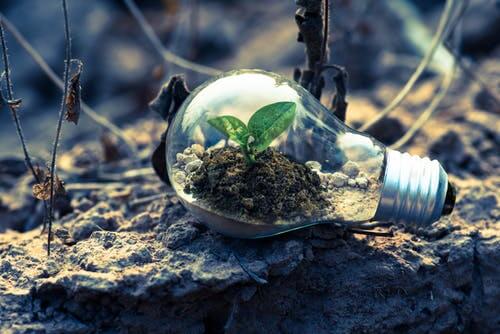Being truly energy efficient in your home, office or property ensures that you spend less on energy bills and expenses. We use energy every day in the form of electric and gas for a range of purposes; to power various appliances, heat water and keep us warm and comfortable when it is cold.
Saving energy and money does not necessarily need to cost much if anything at all and will go a long way in helping the environment and keeping your bills down. There are many ways in which everyone can be a lot more energy efficient ranging from overhauling an existing property to getting an EPC up to the highest standards.
Whilst all new build properties need to undergo air tightness and ventilation testing under Approved Documents Parts L and F respectively, existing properties do not and therefore many opportunities to keep a property energy efficient are missed out on. Every room and element of all properties has the potential to save a degree of energy and collectively, throughout a property this adds up
From how hot water and kitchen appliances are used to keeping out drafts and insulating the appropriate parts of a property, landlords, tenants and homeowners alike can all do a great deal. As a landlord, satisfying as many energy efficiency factors will keep your tenants happy making them more inclined to stay longer in the property.
How to Save Energy with Central Heating
Particularly in the UK, a property’s central heating is one of the most used amenities throughout the year. It uses a great amount of energy to heat the property by heating and distributing hot water to the radiators in the property. Each time the central heating thermostat or the heating’s settings are adjusted, there is a potential expenditure of energy to perform the desired action.
According to UK Power, the average duel fuel [electric and gas] bill can be more than £1,000 depending on the size of the property. Therefore, any potential reduction in fuel; electric or gas bills is a surely welcome addition.
What Can You Do to Reduce Heating Bills?
There are many things that can be done to make you and your property much more energy efficient, helping to reduce your carbon footprint and that of your household or property as well as the amount you pay for heating via electric and gas bills:
Lowering the Temperature – Whilst this may seem obvious, it doesn’t mean turning the heating thermostat down to single digits. Lowering the temperature on a regular basis by just 1°c can save you £60 per year alone. Furthermore, keeping the heating on for longer on a lower temperature is more energy efficient than setting it to higher temperatures for shorter periods.
Use the Programmer– Nearly all central heating systems have a timer which determines when the heating comes on. During this time if the room temperature is below the temperature on the thermostat the heating will be turned on. There are some times of the day such as early morning and early evening where people tend to be at home more and therefore the heating is used more. However, during off-peak times, making sure the heating doesn’t turn on unnecessarily can save a lot of money throughout the year and will make sure an empty house is not heated.
Wrapping Up – Wrapping up just a little bit more will mean that you will be less reliant on the heating. If you are feeling a little cold put on a jumper before you put on the heating.
Showers and Baths
A property’s showers and baths will be regularly used and a great deal of water will be utilised each time which is almost impossible to prevent. Whilst new properties must be tested for water efficiency, saving water can be difficult. However, there are some easy ways of reducing the use of both water and the energy needed to heat it in the first place:
- Take showers rather than baths – shower use less water than baths
- For power showers, reduce the pressure used as this will expend less electricity
- Turn the temperature down slightly to reduce the amount of water heating required
- Spend less time in the shower
- Reduce the amount of water used in baths slightly
- Make sure shower heads and bath taps are clean and free from limescale build-ups that can impede the efficient flow of water
Electrical Energy Saving
In addition to the energy used for water heating and the use of water throughout properties, the electrical system of all modern-day properties is where further money can be saved. A multitude of different appliances throughout all properties have the potential to save electrical energy as well as use it.
Household Appliances – It is important that first and foremost no appliances are left on standby when not in use and when not needed as this uses electric that is otherwise not needed or required. This tends to apply mostly to televisions, chargers, lamps and computers.
Efficiency Ratings – When purchasing new appliances make sure they are as energy efficient as possible. This information may be provided the manufacturer or may require some research to confirm. In addition, it is possible to check energy efficiency labels on some products who need to adhere to minimum standards.
Lights and Bulbs – The lighting used throughout a property can when used efficiently save hundreds of pounds per year on bills. Turn off lights when not in use and use energy efficient or LED bulbs wherever possible to reduce the amount of energy needed to light rooms and to reduce the amount of broken and used bulbs needing to be replaced (energy efficient bulbs last longer). Furthermore, make sure to turn off lights during the night time and consider the use of time switches throughout the day for security purposes when the property is vacant instead of leaving lights on constantly.
Washing Machines, Dryers and Dishwashers
All of these appliances have a range of settings and temperatures that should be made proper use of in order to save energy. Wash all but heavily soiled clothes and garments on a cold wash (most detergents are designed to be effective on cold washes). When drying clothes and other items, try to avoid using the dryer wherever possible by hanging them to dry outside or on an indoor clothes line.
Many items that are hung to dry do not need to be ironed; such as shirts, therefore saving further electricity. For dishwashers, make sure they are not used until full in order to maximise the amount of work from each load.
Fridges and Freezers
Most fridges and freezers that are designed, built and distributed throughout Europe and the western world are designed to be as energy efficient as possible to help you save money on energy. However, there are numerous additional practices to increase their efficiency:
- Make sure all thermostats and seals are properly intact to ensure the appliance’s temperature is managed properly and maintained
- Fill up the freezer as much as possible as any vacant space is filled by warm air whenever it is opened
- Clean the coils and rear sections of fridges and freezers where dirt and debris can build up, impeding efficient functioning
- De-ice freezers as this allows them to not work as hard to keep items inside frozen



